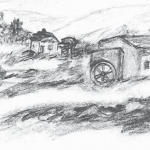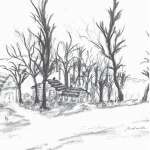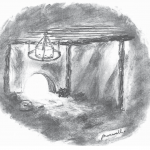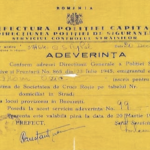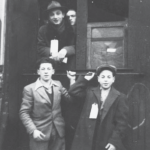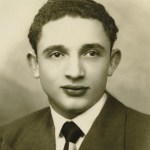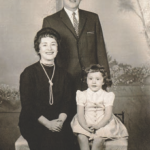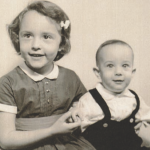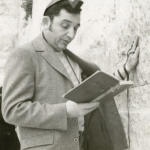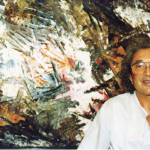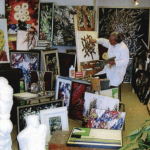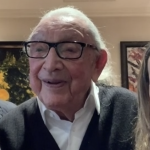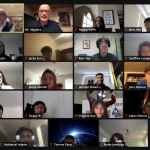Max Smart was born June 1, 1930 in Buczacz, Poland (now Ukraine). He and his family were living a good life in the 1930s, and Max remembers well the idyllic nature of life in that time. Even as events around Poland began to move towards war, Max and his family felt safe, unaware of what would soon descend upon them. Max’s family lived in eastern Poland, in the Soviet zone of occupation according to the terms of the Nazi-Soviet Non Aggression Pact. The Soviet occupation was not overly oppressive, as Max recalls; his father lost his business and was reassigned, but school continued and the basics of life were maintained. In June 1941 the Nazis arrived in Max’s hometown and the situation changed immediately. Max’s father was taken away, and – as the family later learned – murdered by the Nazi killing squads. The family was forced into the ghetto, where hunger dominated Max’s life. When the ghetto was liquidated, Max’s mother urged to escape, and through incredible bravery on her part – and his – he was able to do so. He went into the forest, where he hid and managed to stay alive in spite of the difficult conditions; a local farmer helped him from time to time, and Max also met another Jewish boy at one point, and the two were able to support one another for a time. They were able to save a baby girl during their time together, though both were lost to Max in the end. Max learned of the liberation from the farmer who had helped him, and soon after he was helped by Russian soldiers, who fed and clothed him. After liberation, he travelled around Europe for several years, then immigrated to Canada with a group of orphans in 1948, changing his name to Maxwell Smart. There he became a successful artist in Montreal, raising a family and finding his path in the postwar world. Max was interviewed over zoom by Mr. Masters’ Grade 10 History class in March 2021; we thank Rebecca Snow and the Azrieli Foundation for facilitating this.
Videos
Click next video below to keep watching
